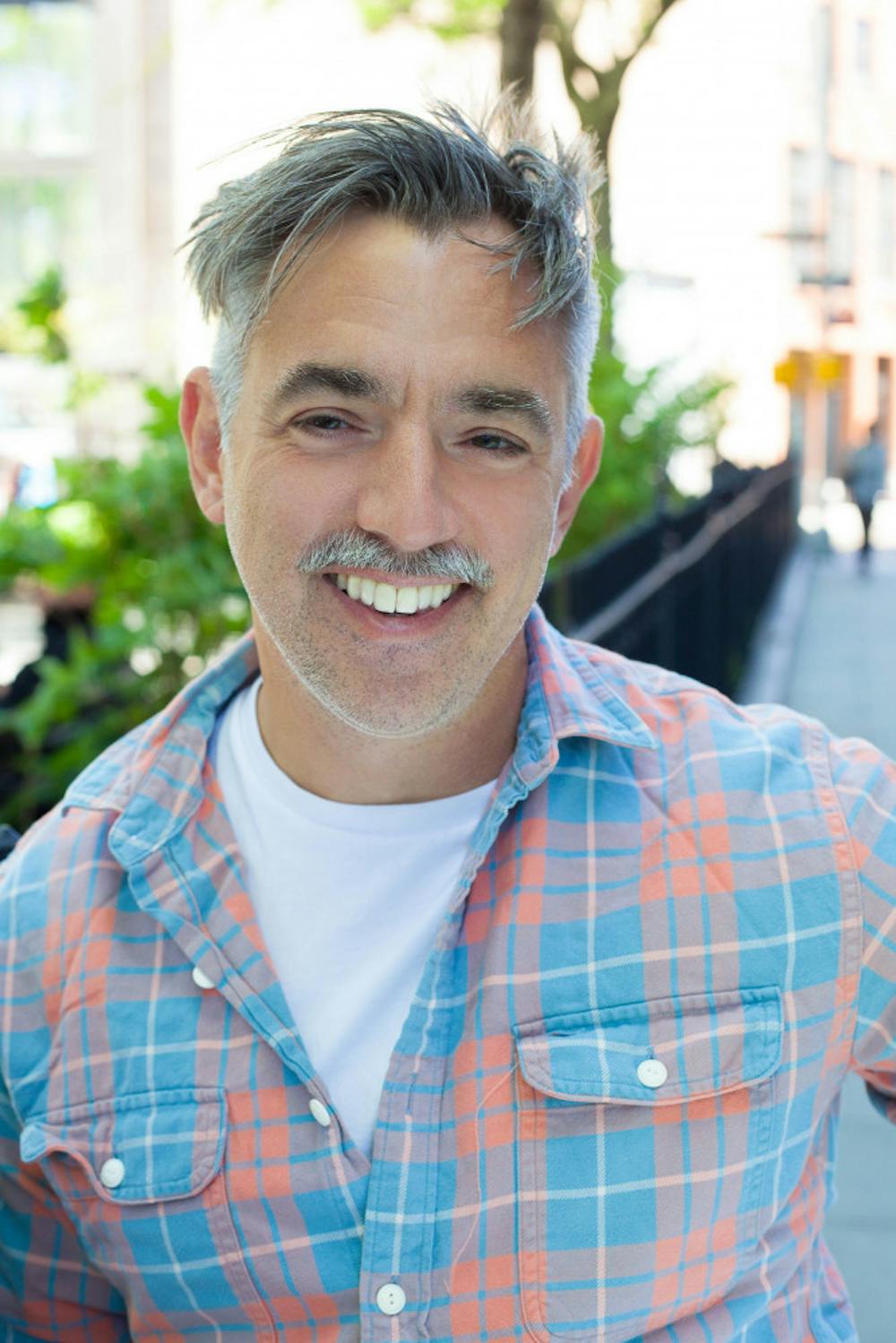Novelist and journalist Tim Murphy ’91 will visit the Brown Bookstore today to discuss his new acclaimed novel, “Christodora.” The novel grapples with sex, drugs and LGBT activism, centering around a cast of characters living in New York City. The novel was an Indie Next Selection for August and an Amazon Book of the Month. Murphy wrote in an email to The Herald about his inspiration for “Christodora,” his writing process while crafting stories and how he navigated his future after graduating from Brown.
Herald: Where do you draw your inspiration from for your novels?
Murphy: Novels are so immersive and really drawn from the deepest parts of your inner life, and I think it takes time to find a complete novel. I published two coming-of-age novels in my late 20s, “Getting Off Clean” and “The Breeders Box” — and I wrote one and a half more — and then I became a full-time journalist and did not attempt fiction again for nearly a decade. By the time I started “Christodora,” I had been an HIV/AIDS writer and journalist for 20 years, and I had several years of my own personal demons with depression and addiction — many ups and downs. And all that went into the book, but honestly, when I started it, I did not have a vision for a full novel, so I just started with a novella made up of feelings sitting like a lump in my heart, and that novella is more or less the first chapter of the book. The first several chapters I thought of as a collection of loosely linked short stories, and then the whole thing started to knit together in my head as I wrote. It was a very organically created book for me.
How did your time at Brown influence your decision to become a writer? Did your four years here cultivate your love for writing?
I was a huge reader and even fiction writer before Brown, but Brown was like a four-year, 24/7 literary and arts salon that never ended — just being surrounded every day and night by brilliant, driven people who were already immersed in their creative careers. I always thought of Brown as a vocational school for very artsy people because you could jump right in and produce theater, film, TV, music. I had a wonderful fiction writing teacher at Brown named Marina Budhos who introduced me to the short fiction of Flannery O’Connor, Yukio Mishima, so many works that have stayed indelibly on my brain ever since and taught me so much about what makes good writing work.
Your latest novel “Christodora” discusses LGBT rights. What are your thoughts on the progress of the movement, and how do you think more progress can be made this year and in the years ahead?
Well, the book is more concerned with treatment, research (and) other services for people with HIV/AIDS in the 1980s and early 1990s, but that activist movement was intrinsically an LGBT rights movement as well because so many of the people affected by the epidemic were LGBT at a time when LGBT people had hardly any rights. Gay people did not even have the legal right to visit their lovers in the hospital. As for right now, I would definitely say that priority number one for LGBT folks, as well as all vulnerable groups such as women, nonwhite people, immigrants, Muslims, etc., is to not only elect Hillary Clinton over It — who I can only call Toxic Orange — but to turn as much of the House and Senate blue as well.
You have also reported extensively on HIV/AIDS and the new prevention pill PrEP — what does this mean for the LGBT community, and how will this success ultimately further the LGBT movement?
I think the new prevention regimen of PrEP — which is taking the HIV med Truvada to prevent HIV — is the biggest HIV breakthrough of the past decade, the biggest thing since effective treatment itself emerged in the mid-late ’90s and started saving lives. I think it has vastly reduced the cloud of fear and anxiety that gay men have lived under for so long. But there are gaps in terms of who is being offered, taking and adhering to PrEP. Rates of PrEP uptake are much lower among gay black men, who have the highest rates of HIV. And solving that is not just about expanding PrEP outreach but looking at all the factors in their lives, like employment and housing and healthcare and family rejection, that impede them from accessing and staying on PrEP.
What is your writing process like? How do you develop characters, setting and plot?
It is a very slow and immersive process. You are honing in on a time, a place, a story, an idea, a set of feelings, a community of people that fascinates you or holds you emotionally for some reason, and then you start carving characters and circumstances and plot out of that. I don’t really know how it happens. Usually I sit down with a very general idea of a chapter or a sequence and then I try to stay really open and listen to the page as I write — not to sound too frou-frou — and see where it takes me. I think you should write what you most want to read and really try to entertain yourself, move yourself, intrigue yourself, stimulate yourself, etc., not to sound too onanistic.
What is your advice to Brown students who wish to pursue writing post-graduation?
My first piece of advice would be: Don’t do what I did and squander or minimize your Brown education! Squeeze every bit of reading and writing you can out of those four years and pretend that you’re already doing it professionally. Be ruthlessly open to feedback. Build up a thick skin. If two or more people are giving you the same note, they’re probably right, and you should probably change your work. Whether it’s fiction or theatergoing or journalism, read voraciously, and when you read, don’t just enjoy it, but think hard about what is making it work. What structural choices is the author making to make the work work? Try to get in the habit of writing a bit every day, even if it’s just for 30 minutes. It’s a muscle you have to exercise just like any other muscle. And finally, I will give you a bit of practical advice, which is, when you’re searching for an agent, read the acknowledgements pages of books that you really love and see who the agent was. You can usually find their contact online. And then when you contact them asking to read your stuff, you should tell them what good taste they have. That’ll give you a huge leap ahead.
This interview has been edited for clarity and length.





